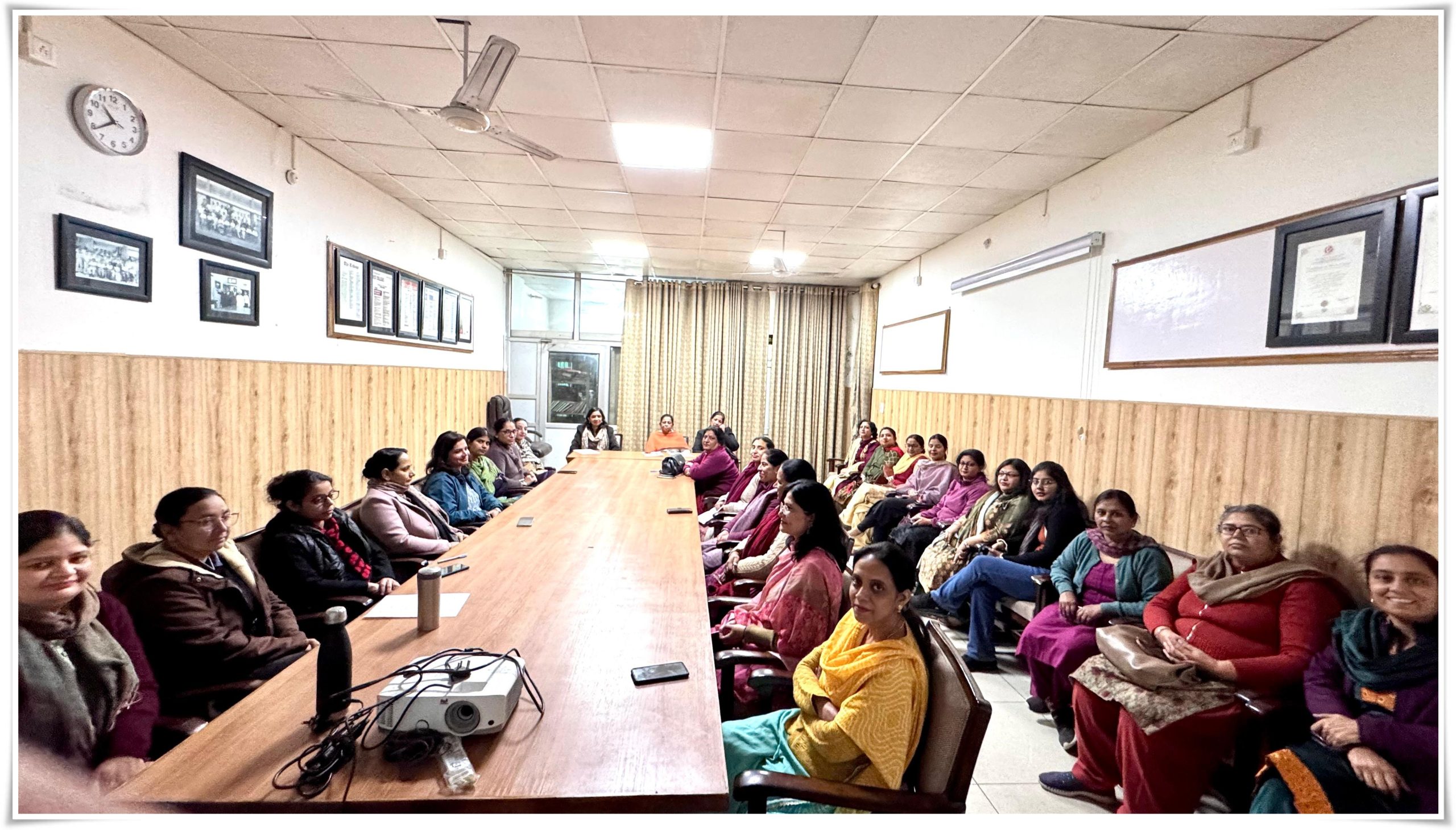Internal Committee Meeting held at Multani Mal Modi College for Sensitization of Faculty about POSH Act and its implications
Patiala: 09.12.2024
A meeting of faculty members was held on 9 December 2024 at Multani Mal Modi College, Patiala under guidelines of the Ministry of Women and Child Welfare, Government of India and the able guidance of college principal Dr. Neeraj Goyal. The meeting was chaired by Vice Principal Prof. Jasbir Kaur. The main objective of the meeting was to sensitize the faculty members about POSH act 2013 which is focused at prevention, prohibition and redressal of sexual harassment of women at working spaces. This act aligns with the Prime Minister’s vision of ‘Viksat Bharat’ during Amrit kal through inclusive growth and gender equality.
Addressing the faculty members Prof. Jasbir Kaur told that The Posh Act, formally known as the Prevention of Sexual Harassment (POSH) Act, was enacted in India in 2013 to address sexual harassment in the workplace. The legislation aims to create a safe working environment for women by mandating employers to implement measures to prevent and address sexual harassment.
The internal Committee member Dr. Neena Sareen discussed the key provisions under this act which include the establishment of an Internal Complaints Committee (ICC) in every organization with ten or more employees, which is responsible for receiving complaints, conducting inquiries, and recommending actions. The law defines sexual harassment broadly, encompassing a range of inappropriate behaviors, and emphasizes the obligation of employers to take proactive steps to ensure a workplace free from harassment.
Prof Jagdeep Kaur, another member of Internal Committee under the POSH act also discussed with the staff members the legal recourse for affected individuals, allowing them to file complaints with the ICC or approach legal authorities if necessary. It requires organizations to conduct regular awareness programs and trainings to educate employees about their rights and responsibilities regarding sexual harassment. To ensure compliance, the Act imposes penalties on organizations that fail to adhere to its provisions. By promoting gender equality and protecting women’s rights in the workplace, the POSH Act represents a significant step towards fostering a safer and more equitable work environment in India.


